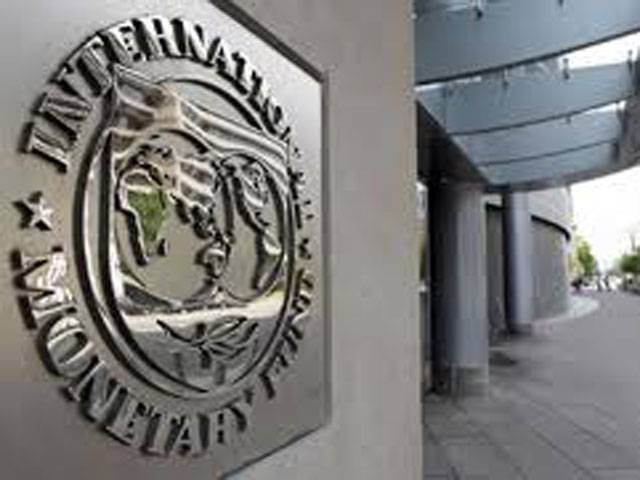WASHINGTON (Agencies) - The International Monetary Fund warned Pakistan Monday over its widening fiscal deficit and slow growth, saying the economy remains deeply at risk to both internal and external shocks.The IMF said Pakistan’s economy would speed up to a 3.4 per cent growth pace in fiscal 2011-2012, which runs to June 30, compared to 2.4 per cent last year. But that was less than half the pace needed to absorb two million new workers in the market every year, it said, while unemployment and underemployment remain higher than the official 6.6 per cent rate.At the same time, loose money policies by the State Bank of Pakistan, meant to help the economy grow, continue to feed double-digit inflation. The economy is ‘highly vulnerable with few buffers to absorb shocks’, the Fund said in an annual report.It noted that political resistance has prevented a needed effort by the government to increase revenues to cover its budget shortfall, with the result that the deficit will expand to about 7.0 per cent of gross domestic product this year from 6.6 per cent last year.The country’s foreign balance is weakening, with exports expected to fall in US dollar value by 1.8 per cent, partly due to falling cotton prices.Meanwhile the central bank’s intervention to support the rupee had led to a $2 billion fall in reserves in the past six months, the Fund said.The IMF warned of ‘considerable downside risks to this already difficult baseline’, citing both the challenging global economic environment and, inside Pakistan, coming Senate and parliamentary elections.In their comment on the report, the IMF executive directors urged the government to boost revenues and tighten its ‘too accommodative’ monetary policy. “Central bank financing of the budget needs to be curtailed, and greater operational independence of the central bank needs to be secured.”The Fund maintained that the economy is ‘highly vulnerable’ and authorities need to slash non-essential spending, make the exchange rate more flexible and improve the central bank’s independence to boost growth.Without corrective measures, the deficit is on track to reach 7 per cent of gross domestic product, more than the government’s new budget target of 4.7 percent, it said.
“On current policies, Pakistan’s near- and medium-term prospects are challenging,” the IMF said in a statement after yearly discussions on the country’s economy. “Growth would remain too low to absorb the large number of new entrants into the labor force, inflation would remain high, and the external position would weaken further.”“Central bank financing of the budget needs to be curtailed, and greater operational independence of the central bank needs to be secured.”WASHINGTON, Feb 6 (Reuters) - Pakistan needs to take immediate measures to stabilize growing budget pressures and to raise interest rates to contain rising inflation, the Fund said.The IMF projected a widening of Pakistan’s budget deficit in fiscal 2011/12 to 7 percent of gross domestic product, much higher than the government’s revised budget target of 4.7 percent. “Unless there are measures taken to rein in the fiscal deficit and the monetary policy tightening that is probably needed right now, pressures on the rupee could continue,” IMF mission chief to Pakistan Adnan Mazarei told a conference call.Pakistan needs to start repaying the loan in February, and authorities have not requested another one, Adnan Mazarei said.The IMF said economic performance has weakened and that problems in the energy sector, two major floods, and a challenging global environment have made the economy vulnerable.It said that while the economy is recovering from the floods, the external position, until recently a source of strength on booming exports and workers’ remittances, is deteriorating. The State Bank of Pakistan’s foreign exchange reserves have declined by about $2 billion in the last six months, according to the IMF.“Pakistan’s near- and medium-term prospects are challenging,” the IMF said in the report. “Growth would remain too low to absorb the large number of new entrants into the labor force, inflation would remain high, and the external position would weaken further.”Saying the country continues to fall short of its economic potential, IMF officials welcomed Pakistan’s intention to reduce the budget deficit but stressed that monetary and exchange rate policies need to be better focused.
Thursday, April 18, 2024
Pak economy highly vulnerable, says IMF

1:55 PM | April 18, 2024
Stefanos Tsitsipas advances in Barcelona
4:19 PM | April 18, 2024
Met Office predicts more rains across country till April 29
2:51 PM | April 18, 2024
Punjab changes school timings for summer season
1:55 PM | April 18, 2024
Enemies of Pakistan are unable to digest investment in the country: Ataullah Tarar
1:29 PM | April 18, 2024
IHC restores Bushra Bibi's appeal for shifting to Adiala Jail from Bani Gala
1:24 PM | April 18, 2024
Hepatitis Challenge
April 18, 2024
IMF Predictions
April 18, 2024
Wheat War
April 18, 2024
Rail Revival
April 17, 2024
Addressing Climate Change
April 17, 2024
Justice denied
April 18, 2024
AI dilemmas unveiled
April 18, 2024
Tax tangle
April 18, 2024
Workforce inequality
April 17, 2024
New partnerships
April 17, 2024
ePaper - Nawaiwaqt
Advertisement
Nawaiwaqt Group | Copyright © 2024





